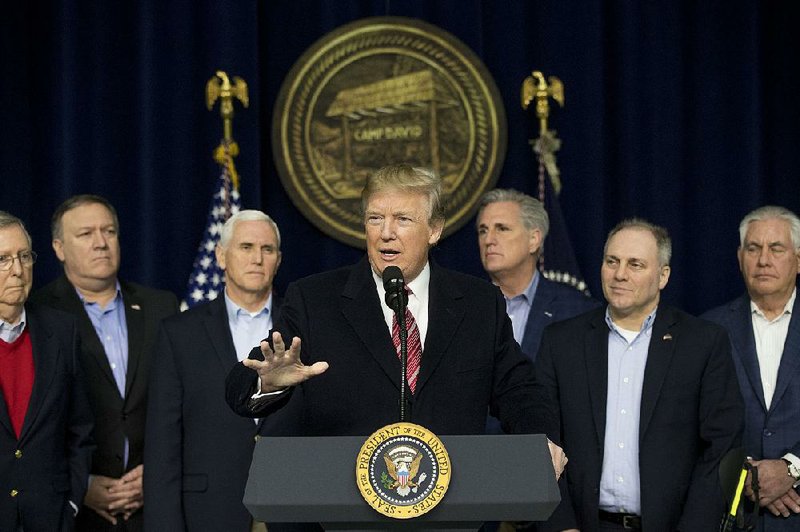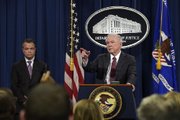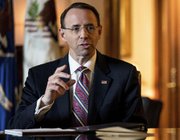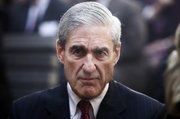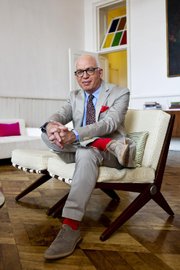WASHINGTON -- There was no collusion with Russia nor were any crimes committed by President Donald Trump's 2016 campaign, the president said Saturday.
His team has been "open" with special counsel Robert Mueller and has "done nothing wrong," Trump told reporters at Camp David in Maryland, where he was meeting with Republican congressional leaders and Cabinet members to discuss legislative strategy for the new year. Mueller is investigating Russian influence on the 2016 election.
Trump bemoaned the focus on Russia, saying the federal probe is "very, very bad for our country. It's making our country look foolish, and this is a country that I don't want looking foolish, and it's not going to look foolish as long as I'm here."
A number of news outlets, including The Associated Press, have reported that Trump directed his White House counsel, Don McGahn, to tell Attorney General Jeff Sessions not to withdraw from the Justice Department's investigation into potential ties between Russia and the Trump campaign.
[PRESIDENT TRUMP: Timeline, appointments, executive orders + guide to actions in first year]
Trump said at Camp David that The New York Times article first reporting the request was "way off, or at least off" -- though he wouldn't say how.
He added: "Everything that I've done is 100 percent proper. That's what I do, is I do things properly."
Trump said he stands by Sessions, a vocal and loyal supporter of his election bid.
In stepping aside from the probe on March 2, Sessions said it was not appropriate for him to oversee any investigation into a campaign of which he was an active supporter, though the recusal also followed the revelation that he had two previously undisclosed interactions during the 2016 campaign with the Russian ambassador to the United States. At his January confirmation hearing, he said he had no meetings with Russians.
Sessions' recusal left Deputy Attorney General Rod Rosenstein in charge of the Russia investigation. But after Trump fired FBI Director James Comey two months later, Rosenstein appointed Mueller, the former FBI director, to run the investigation and to report to him.
Trump and his lawyers have repeatedly maintained that he did nothing improper and that, as president, he had unequivocal authority to fire Comey and to take other actions. They may also argue that the president was empowered to want the attorney general he appointed to oversee the Justice Department's Russian meddling investigation or, as McGahn contended to Sessions, that there was no basis or reason at that time for the attorney general to recuse himself.
Four people, including former national security adviser Michael Flynn and Trump's former campaign chairman, have been charged so far in the investigation.
'VERY STABLE GENIUS'
In his address to reporters, Trump -- an Ivy League graduate -- was ready for questions about a book that portrays him as a leader who doesn't understand the weight of his office.
"I went to the best colleges for college," said Trump, who holds a bachelor's degree from the University of Pennsylvania. "I had a situation where I was a very excellent student, came out, made billions and billions of dollars, became one of the top business people, went to television and for 10 years was a tremendous success, as you probably have heard, ran for president one time and won."
His ire was directed at Michael Wolff, author of Fire and Fury: Inside the Trump White House. The book draws a derogatory portrait of the 45th president as an undisciplined man-child who wanted the attention of a national campaign and the opportunity to criticize opponent Hillary Clinton, but didn't actually want to win the White House.
The book also quotes Trump's former chief strategist, Steve Bannon -- now dubbed "sloppy Steve" by the president -- and other prominent advisers as questioning the president's competence.
"I consider it a work of fiction," Trump told reporters, then bemoaned what he called the country's "very weak" libel laws.
"I don't know this man. I guess sloppy Steve brought him in the White House quite a bit, and it was one of those things," Trump said. "That's why sloppy Steve is now looking for a job."
While the president said he never spoke to Wolff for the book, the author said he spoke to Trump during the campaign and after the inauguration. "Whether he realized it was an interview or not," the conversations weren't off the record, Wolff said.
Trump's comments followed a series of morning tweets in which he defended his mental fitness, saying he is "like, really smart" and that his journey from "VERY successful businessman" to reality TV star to president on his first try "would qualify as not smart, but genius .... and a very stable genius at that!"
Trump argued on Twitter that critics are "taking out the old Ronald Reagan playbook and screaming mental stability and intelligence."
At times when he was president, Reagan seemed forgetful and would lose his train of thought. Doctors, however, said Alzheimer's disease was not to blame, noting it was diagnosed years after he left office.
Reagan was diagnosed in early 1994, about five years after leaving the White House. He announced his diagnosis in a public letter late that year in which he said he was beginning "the journey that will lead me into the sunset of my life."
Trump, now 71, was the oldest president ever when assuming office. Reagan was nearly eight months younger.
Trump is set to have his first physical examination as president Friday at Walter Reed National Military Medical Center in Bethesda, Md. This exam does not typically involve having the president undergo a mental health evaluation, as some Democrats have urged.
Chatter about Trump's mental fitness for office has intensified in recent months on cable news shows and among Democrats in Congress.
White House spokesman Sarah Huckabee Sanders last week called such suggestions "disgraceful and laughable."
"What I think is really mentally unstable is people that don't see the positive impact that this president is having on the country," Sanders said Friday on Fox & Friends, adding that an unfit president "wouldn't have defeated the most qualified group of candidates the Republican Party has ever seen."
Trump tweeted from Camp David early Saturday that "throughout my life, my two greatest assets have been mental stability and being, like, really smart."
Trump's chief of staff, John Kelly, said he had not seen Trump's Saturday tweets until reporters showed them to him just before Trump spoke about noon Eastern time.
"He feels he can go around the press and get his perspective out by tweeting," Kelly said. "That's kind of why he does it."
Trump's perspective Saturday included hopes for changes to the nation's welfare laws, though he said those changes would have to be done on a bipartisan basis. Democrats oppose such changes, and Trump seemed to concede that the issue might have to wait until after more pressing matters such as military funding and infrastructure legislation are tackled.
Flanked by Senate Majority Leader Mitch McConnell and House Speaker Paul Ryan, among other officials, the president pronounced his meetings with Republican congressional leaders "perhaps transformative in certain ways."
He also vowed to campaign vigorously for Republican candidates in the midterm elections.
"We need more Republicans," Trump said.
Information for this article was contributed by Jill Colvin, Eric Tucker, Alan Fram and Chad Day of The Associated Press; by Michael Tackett of The New York Times; and by Arit John, Margaret Talev, Laura Curtis and Jennifer Epstein of Bloomberg News.
A Section on 01/07/2018
